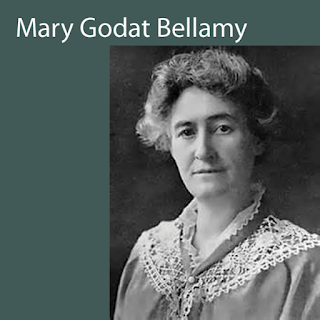Hello! Best wishes to you on these late fall days!
https://www.amazon.com/gp/product/B0BPCNZ9KP
Now available as a pre-order for $0.99
The fashions that built up to the 1840 'look'
I'm already wearing wool...and still freezing. However I also like the brisk temperatures.
I feel especially lucky not wearing the same kind of clothes the women did in 1840 'civilization.' One fashion writer stated that the clothes were more 'restrictive' than any since the 16th and 17th centuries. I recalled an interview with an actress wearing the beautiful clothes, silks and satin of France.
She'd mentioned the long pointed bodice, the tight sleeves that allowed very little arm movement, not to mention the tight corsets and layers of petticoats.
In my opinion, fashion made its way even to Wyoming, though perhaps some time later and the tight sleeves would have to accommodate hard working women.
Some women saddled their husband's horses -- for the farmers and settlers. Sources say that this was also common among the Plains tribes. But I was kind of shocked by a biography about a tough farmer, written by his daughter, one of the famous writers of the early 1800's. Suffice it to say that it was not the clean wholesome kind of novel many of us read and write now. Though women were in high demand, domestic violence was common. This particular father had five wives: two divorced him.
It's hard to get statistics, and I'd be interested in how common it was for men to have several wives during their lifetimes. Divorce was relatively easy in the far West (that also surprised me because people so often, in England, were not allowed to marry again, even when one spouse was institutionalized).
I feel especially lucky not wearing the same kind of clothes the women did in 1840 'civilization.' One fashion writer stated that the clothes were more 'restrictive' than any since the 16th and 17th centuries. I recalled an interview with an actress wearing the beautiful clothes, silks and satin of France.
She'd mentioned the long pointed bodice, the tight sleeves that allowed very little arm movement, not to mention the tight corsets and layers of petticoats.
In my opinion, fashion made its way even to Wyoming, though perhaps some time later and the tight sleeves would have to accommodate hard working women.
Some women saddled their husband's horses -- for the farmers and settlers. Sources say that this was also common among the Plains tribes. But I was kind of shocked by a biography about a tough farmer, written by his daughter, one of the famous writers of the early 1800's. Suffice it to say that it was not the clean wholesome kind of novel many of us read and write now. Though women were in high demand, domestic violence was common. This particular father had five wives: two divorced him.
It's hard to get statistics, and I'd be interested in how common it was for men to have several wives during their lifetimes. Divorce was relatively easy in the far West (that also surprised me because people so often, in England, were not allowed to marry again, even when one spouse was institutionalized).
Here are some examples of the clothes I've discussed. First, the dresses of the 1600's & then 1700's.
1610's
Please note the long pointed bodice. A 'stomacher' was inserted (you can see the buttons at the top). The elongated bodice was still worn in 1750, again in the form of a stomacher.
Maria Josefa (1751-67)
1768
The necklines were high and got higher and stiffer at the end of the 1800's in the Wild West. Sleeves were long and tight in the early 1800s then became comfortably loose.
You might have to look at little carefully, because the 1840's dress in America wasn't as exaggerated; but it's the same fashion.
*****
Notable Women in Wyoming 1840-1905
First woman legislator
A resident of Laramie, she was the first woman elected to the Wyoming State Legislature. A school teacher by profession, she was married to Charles Bellamy who was the first licensed professional engineer in the United States. Together with her husband, Mary supervised many surveys of the northern Rocky Mountains.
She arrived in Wyoming 1868 in a horse cart with her children in tow.
She was appointed the first ever female bailiff in 1870 because the first women were serving on juries. Only a woman was permitted to guard female jurors at their hotel & to escort them to the necessary, making only a woman eligible as bailiff.
***
Wyoming is part of the High or Upper Great Plains, an area that reaches to Canada and has half of Nebraska, Kansas, North and South Dakota. When land was settled, people came in droves to Wyoming, most unprepared for how rough this land was. It had Yellowstone as well as grasslands suitable for cattle and raising sunflowers (American Indians knew many uses for sunflowers, as did most settlers).
I hope you've enjoyed this article about the development of Wyoming. Best holiday wishes from Cora Leland, Author!

.jpg)
.png)









No comments:
Post a Comment
Thank you for visiting Sweethearts of the West! We are very sad to require comment moderation now due to the actions of a few spam comments. Thank you for your patience.